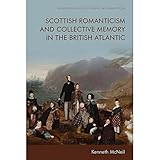Scottish Romanticism and Collective Memory in the British Atlantic / Kenneth McNeil.
Material type: TextSeries: Edinburgh Critical Studies in Romanticism : ECSRPublisher: Edinburgh : Edinburgh University Press, [2022]Copyright date: ©2020Description: 1 online resource (384 p.)Content type:
TextSeries: Edinburgh Critical Studies in Romanticism : ECSRPublisher: Edinburgh : Edinburgh University Press, [2022]Copyright date: ©2020Description: 1 online resource (384 p.)Content type: - 9781474455466
- 9781474455480
- 820.9/14509411 23
- PR8549 .M36 2020eb
- online - DeGruyter
| Item type | Current library | Call number | URL | Status | Notes | Barcode | |
|---|---|---|---|---|---|---|---|
 eBook
eBook
|
Biblioteca "Angelicum" Pont. Univ. S.Tommaso d'Aquino Nuvola online | online - DeGruyter (Browse shelf(Opens below)) | Online access | Not for loan (Accesso limitato) | Accesso per gli utenti autorizzati / Access for authorized users | (dgr)9781474455480 |
Browsing Biblioteca "Angelicum" Pont. Univ. S.Tommaso d'Aquino shelves, Shelving location: Nuvola online Close shelf browser (Hides shelf browser)

|

|

|

|

|

|

|
||
| online - DeGruyter Earthbound : The Aesthetics of Sovereignty in the Anthropocene / | online - DeGruyter Children and Childhood in the Ottoman Empire : From the 15th to the 20th Century / | online - DeGruyter Gender, Governance and Islam / | online - DeGruyter Scottish Romanticism and Collective Memory in the British Atlantic / | online - DeGruyter The Literary Afterlife of Raymond Carver : Influence and Craftmanship in the Neoliberal Era / | online - DeGruyter Ruth Davidson's Conservatives : The Scottish Tory Party, 2011-19 / | online - DeGruyter Stanley Cavell and the Magic of Hollywood Films / |
Frontmatter -- Contents -- Acknowledgements -- Introduction: ‘So complete a change’ (in So Short a Time) – Scottish Romanticism, Modernity and Collective Memory -- Chapter 1. Aftermaths: Walter Scott and Imagining Collective Memory in the Transatlantic World -- Chapter 2. Memory on the Margins: Anne Grant’s Atlantic World -- Chapter 3. Indigenous Elsewhere: Lord Selkirk and Native Memory and Resettlement -- Chapter 4. Memory, Identity and the Scottish Remembrance of Slavery -- Chapter 5. John Galt and Circum-Atlantic Memory -- References -- Index
restricted access online access with authorization star
http://purl.org/coar/access_right/c_16ec
Charts the transatlantic movements of Scottish literature in the Age of RevolutionOffers an in-depth examination of Scottish Romantic literary ideas on memory and their influence among various cultures in the British Atlantic, broken down into distinct writing modes (memorials, travel memoir, slave narrative, colonial policy paper, emigrant fiction) and contexts (pre- and post-Revolution America, French-Canadian cultural nationalism, the slavery debate, immigration and colonial settlement)Looks at familiar Scottish writers (Walter Scott, John Galt) in new ways, while introducing less familiar ones (Anne Grant, Thomas Pringle)Brings Scottish Romantic literary studies into new engagements with other fields (such as transatlantic and memory studies)Opens up new dialogues between Scottish literature and culture and other literatures and cultures (for example, French-Canadian, Black Diaspora, Indigenous)Scots, who were at the vanguard of British colonial expansion in North America in the Romantic period, believed that their own nation had undergone an unprecedented transformation in only a short span of time. Scottish writers became preoccupied with collective memory, its powerful role in shaping group identity as well as its delicate fragility. McNeil reveals why we must add collective memory to the list of significant contributions Scots made to a culture of modernity.
Mode of access: Internet via World Wide Web.
In English.
Description based on online resource; title from PDF title page (publisher's Web site, viewed 27. Jan 2023)


